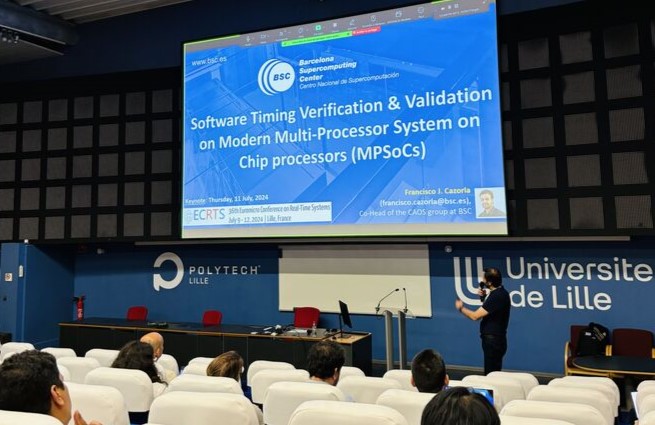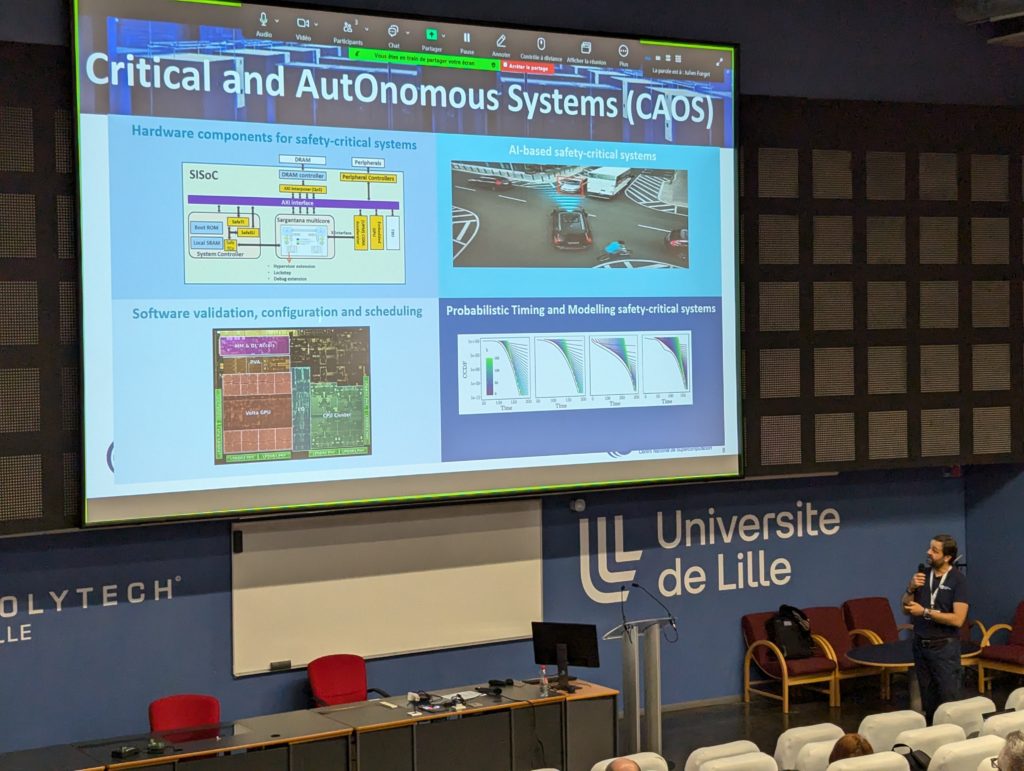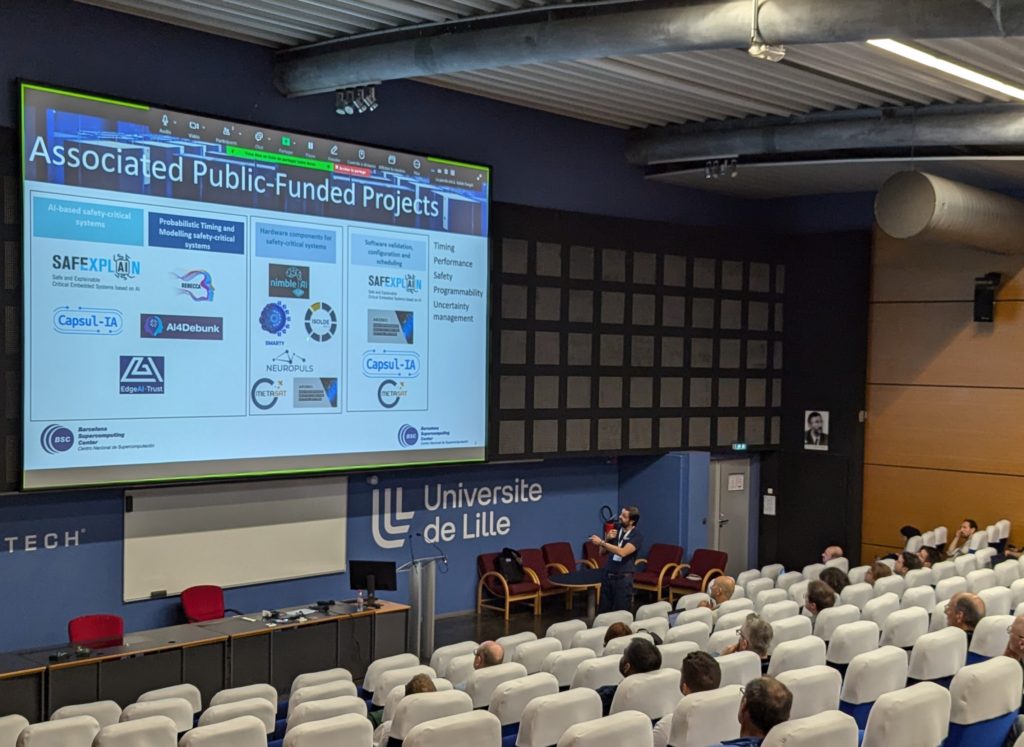BSC Research on real-time embedded systems takes center stage at premier European conference

The 36th Euromicro Conference on Real-Time Systems is a major international conference showcasing the latest in real-time and embedded systems. It brings together state-of-the-art research and development in real-time computing, technology that is indispensable for the safe operation of automotive, space, avionics, robotics.
Francisco Cazorla, co-leader of the BSC’s Critical and AutOnomous Systems (CAOS) group, opened the second day of the 36th Euromicro Conference on Real-Time Systems with a look into the challenges and opportunities posed by increasingly autonomous critical embedded systems on software timing verification and validation.

These systems build heavily on complex AI software and the Multi-Processor System on chip processors (MPSoCs) that provide the required performance levels for them to function. Despite the capabilities of MPSoCs, their complexity creates challenges for functional safety, especially timing verification and validation. These functions are extremely important, especially in systems where failure could cause irreparable harm, damage or economic loss.
Dr Cazorla’s keynote, “Software Timing Verification & Validation on Modern Multi-Processor System on Chip processors” delved into the two sets of approaches that BSC researchers are pursuing to mitigate the risks associated to the increasingly complexity of MPSoCs on software timing behavior:
- Software-only approaches that address key timing verification and validation challenges
- Hardware solutions that seek to extend high-performance MPSoCs to enable their use in safety-relevant scenarios without impacting performance

Whole-stack transformational approaches to critical real-time systems are being pursued to improve safety, temporal, functional and security capabilities through research in hardware, software and modelling. This research is being developed through several European and national funded projects including AI4Debunk, AR2SEC, CAPSUL-IA, EdgeAI-Trust, ISOLDE, METASAT, NEUROPULS, NimbleAI , REBECCA, SAFEXPLAIN and SMARTY.